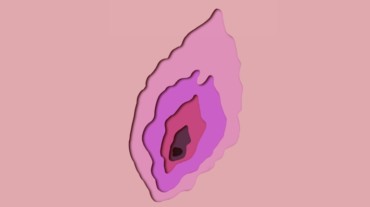Chat with ![]()

Chat with ![]()


Ladies, do you remember the mention of ‘vulvodynia’, in the ever-popular Sex & The City by Charlotte, who tells her girls that she feels her vagina is ‘depressed’? Well, let’s just break it to you that it wasn’t fiction. A condition like this does exist, and it is important you understand its seriousness.
The chronically painful illness shows up mainly after you’ve had sex. There’s a kind of soreness that women experience when they get physical with their partners or even urinate. Now, this could sound like a urinary tract infection, but it’s not. And we do not want to scare you, but if left untreated, the pain can get overwhelming for you to even handle.
But before we get down to the details, there’s something we want to tell you. For the many affected women, there is an additional burden of convincing people that they actually experience something like this!
For a long time, the concept of a depressed vagina has been dismissed, with most people calling it ‘psychosomatic’ and potentially linking to a mental illness. Well, that’s not true at all. Rather, vulvodynia it causes mental issues triggered by the stigma, so much so that some women have to quit their jobs, or even end their marriage. Because the pain is too much to handle, and it debilitates them!
According to the American College of Obstetrics and Gynecology, vulvodynia is defined as vulva pain that lasts three months or longer, and is not caused by any infection, skin disorder, or any other medical issue.

It could be of two kinds:
1. Generalised vulvodynia which can affect different parts of the vulva at different times, and the pain could be constant, or just occur from time to time.
2. In the case of localised vulvodynia, it is described as pain found in one specific area of the vulva. It is often associated with a burning sensation post sexual intercourse, inserting a tampon, or prolonged sitting. The pain and irritation is so overpowering that it becomes almost impossible for women to think about sex, or even sit for long periods of time.

As per a Harvard study, only 60% of affected women receive an accurate diagnosis, and that’s only after visiting a string of doctors.
Since not much research has been done on this subject, the exact cause of vulvodynia has never been found. However, some studies claim that contraction happens due to some genetic abnormalities of vulvar cells, or even localised hypersensitivity to yeast or spasm in the pelvic floor muscles.
Some studies also suggest that vulvodynia is linked to autoimmune disorders, nerve damage, chronic yeast infections, and the condition is more visible in those who suffer from depression and anxiety.
Also, watch:
Although antidepressants are used to manage the pain in such patients, there are some home remedies that can be followed to tackle the symptoms better:
So ladies, follow these tips and feel better soon! Do not hesitate to visit a doctor, and get the right medication.